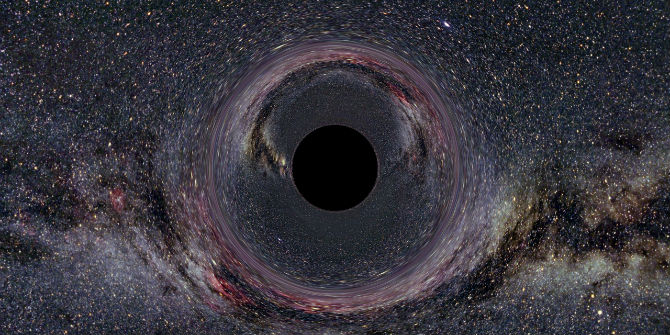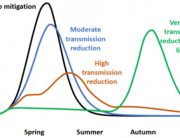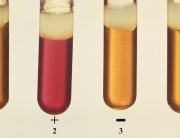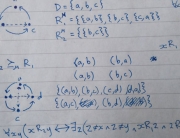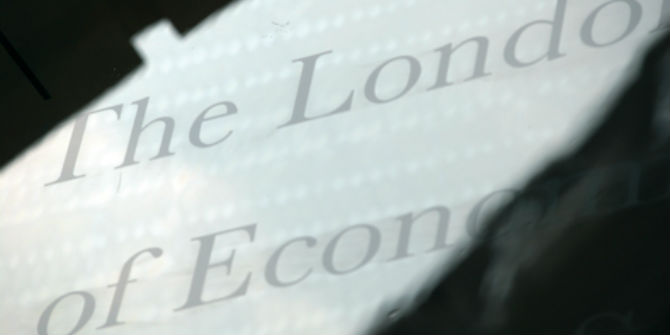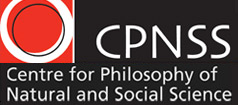The LSE Department of Philosophy, Logic and Scientific Method is a historic and world-class centre for philosophy of science. Having been home to the influential philosophers of science Karl Popper and Imre Lakatos and still bustling with cutting edge research, the LSE is an incredible place to do an MSc in Philosophy of Science.
Here’s what some of our past students have said about their time spent studying for this degree:
“Even before starting the MSc in Philosophy of Science I knew I wanted to do a PhD in Philosophy at LSE. The master’s programme offered me the right environment to develop the necessary skills for making a successful application to a PhD programme and the intellectual background and confidence for embarking on such a project… All in all, the MSc in Philosophy of Science was a very enjoyable experience in my academic and personal life and I strongly recommend it.”
Alexandru Marcoci (Alexandru is currently studying for our Philosophy MPhil/PhD)
“Pursuing this MSc at the LSE is an excellent experience. There is a fair division between taught courses and a research project, leading to your dissertation. This gives students the opportunity to acquire new or deepen existing knowledge in a field as well as to dip into the fascinating experience of developing your own ideas and approaches to tackle a problem. This double-edged goal is, I think, what a Master’s programme should in the best case provide.”
Philippe van Basshuysen (Joint-winner of the 2013/4 Imré Lakatos Prize)
Philosophy of Science
Science is chock full of miraculous predictions, shocking revolutions, and utterly strange results that few science fiction writers could have ever dreamed of. Part of your study of the philosophy of science will be to better understand what makes science so special. Some of the questions may involve very general inquiries into how science works. Others may involve very specific such as how to understand a quantum particle. The range of problems studied in the philosophy of science are both deep and broad.
What it’s like
LSE ranks among the top 10 programmes in the world in multiple areas of philosophy of science.
You’ll get a chance not only to do your coursework with some of the world’s top researchers in philosophy of science, but will be surrounded by the intellectual bustle that is so characteristic of LSE.
The department hosts an incredibly rich series of regular events, where just about every philosopher of science in the field eventually passes through. Each months the British Society for the Philosophy of Science hosts their regular lecture series at LSE. In addition, you will enjoy the historic Sigma Club lecture series on philosophy of physics, as well as the Choice Group and the Managing Severe Uncertainty project.

The coursework is rigorous and flexible. Students are provided with a solid base in the central problems and results of philosophy of science, but still have ample opportunity to choose the area of philosophy of science that suits them best.
What you’ll do
LSE’s distinctive approach to philosophy of science is really continuous with the sciences.
In our general and specialist courses the philosophical analysis is inseparably intertwined with science, and often directly motivated by problems in the sciences. At LSE students learn to reason with a kind of philosophical rigour that makes essential use of scientific tools such as modern logic and probability theory.
A typical student on this programme can expect to have, for each examined course, 20 hours of lectures and 30 hours of seminars from our world-class primary academic faculty, with a guarantee that no seminar will have more than 15 students. In addition, there is 30 hours of teaching on the dissertation research and writing seminar, plus plenty of one-on-one advising and discussion time with your lecturers during office hours.
| Either: | PH400 Philosophy of Science | Or: | PH458 Evidence and Policy (H) and any philosophy course that you have not already taken. | Or: | PH459 Governing Knowledge: Foundational Issues in Science Policy (H) and any philosophy course that you have not already taken. |
| Courses to the value of two units from the list of philosophy options below. | |||||
| PH445 Dissertation Seminar (non-assessed) to help prepare you to write your dissertation | |||||
| PH499 Dissertation in which you work with a supervisor to write your own piece of original research in the field. Much of the writing takes place over the Summer Term. | |||||
For more details about the courses, see the LSE Course Description page and the Official Programme Regulations.
Who is suited for this degree
The MSc in Philosophy of Science draws students from around the world. It is an ideal way to prepare for further PhD work in philosophy or a science, and indeed a rare opportunity for students interested in academics to study with such a large number of philosophers of science. Many of our graduates thus go on to further study.
However, the rigorous analytic and scientific skills this programme provides are applicable in a range of high-level occupations, for employment in fields such as science journalism, science administration, policy-making and medicine. Strong applications that show a careful and considered interest in the fields of study for this degree stand the best chance of acceptance.
There is in addition a great deal of optional activity in the philosophy and foundations of physics events like the Sigma Club Lectures, among other things. Thus, candidates with backgrounds in or interests in physics or mathematics are especially encouraged to apply.

Graduate destinations
Besides going into academics, graduates from the MSc in Philosophy of Science programme have recently gone on to hold job titles such as Analyst, Director/CEO, Financial trader, Private tutor and Technology Consultant. Over 75% of graduates between 2010-2012 were studying or employed within 6 months of graduating, with an average full-time salary of £27,000.
Funding
All applicants for this degree will be considered for the LSE Graduate Support Scheme.
As well as this, successful applicants to the Philosophy of Science MSc programme are eligible to be considered for the Lakatos MSc Scholarship, of which up to £5000 may be awarded in any given year. The award of this scholarship is based upon the information contained in the application itself and all applications received by 24 April will be automatically considered. This scholarship is available to both Home UK/EU and Overseas Students and the successful recipient(s) will be notified via email by the end of May.
For more information about funding opportunities, please visit the LSE Financial Support Office homepage.
Preparatory Reading and Booklist for Offer-Holders
A suggested booklist for offer-holders considering studying this degree is available on ReadingLists@LSE.
Application Process
Applications for our MSc degrees open around mid-October and usually close in late April. To improve your prospects, students are encouraged to apply early in the application cycle. Further information about the application process is available on the Graduate Admissions website.
For further questions, contact:
- Andrea Ledwig (Taught Programmes Manager): A.Ledwig@lse.ac.uk
- Miklós Rédei (Degree Coordinator): M.Redei@lse.ac.uk


